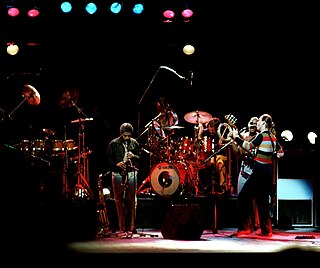
Weather Report was an American jazz fusion band active from 1970 to 1986. The band was founded in 1970 by Austrian keyboardist Joe Zawinul, American saxophonist Wayne Shorter, Czech bassist Miroslav Vitouš, American drummer Alphonse Mouzon as well as American percussionists Don Alias and Barbara Burton. The band was initially co-led by co-frontmen Zawinul and Shorter but, subsequently as the 1970s progressed, Zawinul largely became the sole musical leader of the group. Other prominent members at various points in the band's lifespan included Jaco Pastorius, Alphonso Johnson, Victor Bailey, Chester Thompson, Peter Erskine, Airto Moreira, and Alex Acuña. Throughout most of its existence, the band was a quintet consisting of Zawinul, Shorter, a bass guitarist, a drummer, and a percussionist.

Houston Person is an American jazz tenor saxophonist and record producer. Although he has performed in the hard bop and swing genres, he is most experienced in and best known for his work in soul jazz. He received the ‘Eubie Blake Jazz Award’ in 1982.
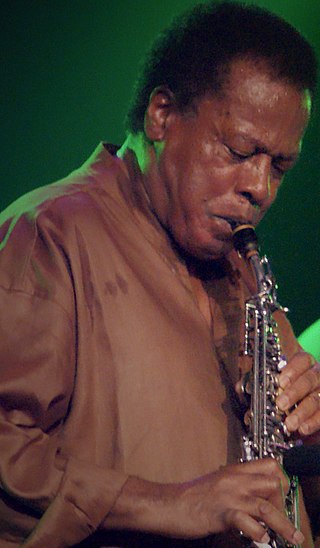
Wayne Shorter was an American jazz saxophonist, composer and bandleader. Shorter came to mainstream prominence in 1959 upon joining Art Blakey's Jazz Messengers, for whom he eventually became the primary composer. In 1964 he joined Miles Davis' Second Great Quintet, and then co-founded the jazz fusion band Weather Report in 1970. He recorded more than 20 albums as a bandleader.

Miroslav Ladislav Vitouš is a Czech jazz bassist.
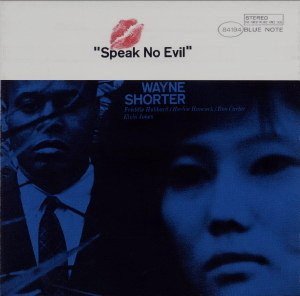
Speak No Evil is the sixth album by Wayne Shorter. It was released in June 1966 by Blue Note Records. The music combines elements of hard bop and modal jazz, and features Shorter on tenor saxophone, trumpeter Freddie Hubbard, pianist Herbie Hancock, bassist Ron Carter and drummer Elvin Jones. The cover photo is of Shorter's first wife, Teruko (Irene) Nakagami, whom he met in 1961.
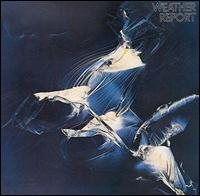
Weather Report is the debut studio album by American jazz fusion band Weather Report, released on May 12, 1971 by Columbia Records. The album was reissued by Sony and digitally remastered by Vic Anesini in November 1991 at Sony Music Studios in New York City.
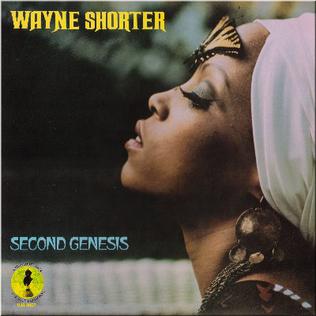
Second Genesis is the second album by jazz saxophonist Wayne Shorter recorded by the Vee-Jay label in 1960 but not released until 1974. It was his second session as leader, performing with his Jazz Messengers boss Art Blakey on drums, pianist Cedar Walton and bassist Bob Cranshaw. Walton joined Blakey's Messengers the following year, following the departure of Bobby Timmons.

V.S.O.P. is a 1977 double live album by keyboardist Herbie Hancock, featuring acoustic jazz performances by the V.S.O.P. Quintet, jazz fusion/ jazz-funk performances by the ‘Mwandishi’ band and The Headhunters. The concert was advertised as a "Herbie Hancock Retrospective," and Miles Davis, who was several months into his temporary retirement, was advertised as playing with the V.S.O.P. group. According to concert attendees, on the night of the show a handwritten sign was posted on the lobby door announcing that Davis would not be playing, but that Hubbard would be appearing instead.
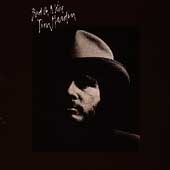
Bird on a Wire is an album by folk artist Tim Hardin, released in 1971. It was Hardin's second release on Columbia Records. It peaked at No. 189 on the Billboard Pop Album charts and was his last album to chart.

Moto Grosso Feio is the thirteenth album by Wayne Shorter, recorded in 1970 but not released on the Blue Note label until 1974. The album features four originals by Shorter and an arrangement of "Vera Cruz" by Milton Nascimento. Some of the musicians include guitarist John McLaughlin, bassist/cellist Ron Carter, bassist Dave Holland, and drummers Jack DeJohnette and Micheline Pelzer.

Sama Layuca is a studio album by American jazz pianist McCoy Tyner, released in 1974 by Milestone Records. It was recorded on March 26, 27, and 28, 1974, featuring oboist/flautist John Stubblefield, alto saxophonist Gary Bartz, tenor saxophonist Azar Lawrence, vibraphonist Bobby Hutcherson, bassist Buster Williams, drummer Billy Hart and percussionists Guilherme Franco and Mtume.
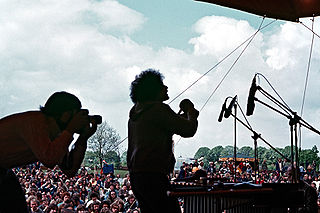
David Friedman is an American jazz percussionist. His primary instruments are vibraphone and marimba.
Bobby Thomas was a Kittitian-American jazz drummer. A member of Junior Mance's trio in 1960, Thomas recorded with the Montgomery Brothers in New York in January 1960.

Zawinul is the third studio album by jazz composer and pianist Joe Zawinul recorded in 1970 by Zawinul performing music arranged for two electric pianos, flute, trumpet, soprano saxophone, two contrabasses, and percussion. The album reached number 17 in the Billboard Jazz album charts.

Directions is a compilation album by American jazz musician Miles Davis, released in 1981 by Columbia Records. It collects previously unreleased outtakes that Davis recorded between 1960 and 1970. Directions was the last of a series of compilation albums—mostly consisting of, at that time, previously unreleased music—that Columbia released to bridge Davis' recording hiatus that ended with the Man with the Horn in July 1981.

Free is an album by Brazilian jazz drummer and percussionist Airto Moreira with performances recorded in 1972. The album was released by CTI Records and reached No. 30 on the jazz album chart at Billboard magazine.

Blues in Orbit is an album by jazz composer, arranger, conductor and pianist Gil Evans, recorded in 1969 and 1971 by Evans with an orchestra featuring Jimmy Cleveland, Howard Johnson, Billy Harper, and Joe Beck. The album was originally released on the short-lived Ampex label as Gil Evans (1970) but received wider release on the Enja label under this title.
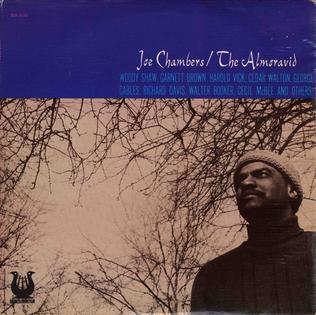
The Almoravid is the debut album led by drummer Joe Chambers recorded in 1971 and 1973 and released on the Muse label.

Without a Net is a live album by American jazz saxophonist Wayne Shorter and his ‘Footprints’ Quartet: pianist Danilo Perez, bassist John Patitucci and drummer Brian Blade. The album was released on 5 February 2013 via Blue Note to critical acclaim.

Night Song is an album by the saxophonist Arthur Blythe, released via Clarity Recordings in 1997.



















